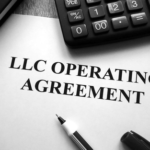Mergers and Acquisitions (or M&A, for short) is the shorthand phrase for the legal work related to the buying or selling of a business. Buying and selling a business can take the form of an asset purchase and sale, stock purchase and sale, or merger, among others. The form of the transaction is often driven by liability and tax considerations.
If you are considering buying or selling a business, you’d be wise to hire an attorney to guide you. Here’s a sample of the assistance attorneys can provide:
1. Due Diligence. Due diligence means getting relevant information about the seller’s business. Most purchase and sale agreements contain a due diligence period, allowing a time period for the buyer to evaluate due diligence information to decide whether to close the deal. The types of information the buyer should seek depends on the type of business and the type of transaction. Often, this includes information and documents related to the corporate minute book, tax returns, tax and internal audits, IRS correspondence, intellectual property (like patents, copyrights, and trademarks), inventory, real estate, equipment, customers, suppliers, accounts receivable, accounts payable, the books, loans and credit, equipment leases, employment contracts, pending litigation, and regulatory compliance. It’s important for an attorney to be involved in this process so that you get the right documents to make your decision.
2. Letter of Intent. A letter of intent (also known as a “memorandum of understanding”) is a nonbinding document outlining the material deal terms. This document sets expectations between the parties and helps them avoid unnecessary costs. It’s important to have an attorney involved in the letter of intent because, even though it’s not binding, it is difficult to change the terms from the letter of intent. Each party will have incurred significant expenses pursuing the deal on the letter of intent terms. You want to get the letter of intent right.
3. Definitive Agreement. The definitive agreement means the controlling contract between the parties. This is often an asset purchase and sale agreement, stock purchase and sale agreement, membership interest purchase and sale agreement, or merger agreement. This contract will set forth each party’s legal obligations, each party’s factual representations, contingencies, and other terms. You need a lawyer to properly draft, advise, and negotiate the definitive agreement because it will define your and the other party’s legal rights and responsibilities.
4. Closing. The closing is the event where each party exchanges executed documents, money, and property. If real estate is involved in the transaction, then the closing will likely take place at a title company. If not, a law firm can serve as the place of closing. Attorneys help coordinate the closing.
5. Security Documents. In some transactions, one or more parties may have obligations after the closing. In order to secure the performance of that party, the other party will often take security. Security can take the form of security agreements, mortgages, pledge agreements, personal guarantees, and other arrangements. Attorneys draft and help you enforce these legal obligations.
If you are buying or selling a business, contact our Business Law Team. We are here to help.










